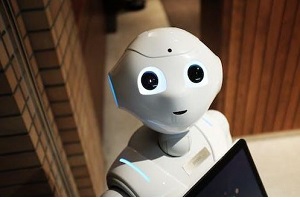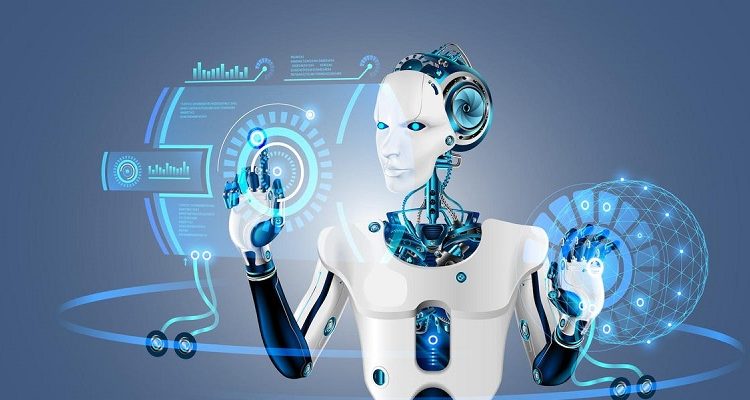Japan AI Market
Is Japan Leading the way in Artificial Intelligence ( AI )?
Nowadays, everything is automated as less labour is given to human robots. Before a year ago, robots were only given specific tasks to complete, and they were the only ones capable of completing them. Sophia, the first human robot, has nearly all human emotions, and after interacting with humans, she was mentioned in a few interviews, letting people know that the robot age hasn’t yet arrived and that artificial intelligence is the driving force behind robots. Many people who are not technically savvy are unclear what artificial intelligence is. The field of artificial intelligence is developing and increasing every day, and in essence, it’s about transferring or creating any system that has the ability to think like a person and behaves accordingly. Japan leads the artificial intelligence (AI) market.
Japan is the nation that consistently astounds the globe with its inventions, therefore they are presently focusing mostly on artificial intelligence-based projects and have actually begun employing a variety of robots, including Google Home and Amazon Alexa, in their everyday lives. Japan leads the artificial intelligence (AI) market. This supports regular to-do lists, music playback, Google searches, and reminders, while others are discussed below and some other effects are explained in a different way.
Why Japan is emerging in AI and robots?
One of the reasons Japan is a leader in robotics is that they began producing robots and employing them in various ways in the late 19th century. As a result, Japan leads the world in robotics and robotics-related advancements. They have created robots for them that can interact and converse in Japanese. They also have robot hotels and restaurants where the robots run the whole establishment, including the front desk and wait staff. The fact that Japan has more patents on artificial intelligence than any other nation demonstrates how quickly the industry is moving toward robots. Japan leads the artificial intelligence (AI) market. First and foremost, the concept of using robots was created to complete the laborious, dangerous activity. however, it can be completed more quickly if robots are used.

Source: Pexels.com
Where will be the robots can be used in future?
Humanoid robots that definitely understand human language and can thus communicate and even provide answers list are already available, and in the future, we will also get customised robots that can understand what you want and even recommend you in your critical situation. In the meantime, they can also assist you in maintaining your healthy lifestyle, including your diet. In the near future, we will also have domestic and kitchen robots that will help you manage your home. The robots will also assist you with office work, and in medical offices, the robots will support your physicians. Japan leads the artificial intelligence (AI) market.
In addition, Japan pioneers the usage of sex robots for illicit reasons. The parameters of this sex robot may also be altered to suit the owner’s preferences. According to recent reports, Japan also deployed the robots for hospitality during the 2020 Olympic Games, providing the athletes with the services and hospitality. Everyone is waiting for it, and it might also serve as a test for robots to see how effectively they can work for humans.
Why robots should be manufactured with limitations?
Many people also question whether having robots for everything is a good idea because there may be some drawbacks. It’s acceptable to use robots for life-saving tasks, but automating all tasks is not a good idea because doing so will cause unemployment, increase dependence on robots, and cause a gap between upper class and middle class societies. Japan leads the artificial intelligence (AI) market. In addition, not everyone is able afford a robot for their home, which can cause illnesses due to reduced workload and laziness, and because of people’s loneliness, depression can arise.
Therefore, a balance is necessary to prevent issues like the loss of human life if contact with people and robots alike is to be maintained. 29 Japanese scientists were killed by four robots, according to press reports from 2017. The robots industry has been disturbed by this incidence, and the major worry is that if humans are all killed out, humans may be responsible for the end of the planet.
Why robots can be harmful?
Linda Moulton Howe, a journo and conspiracy theorist by profession, reported an incident that allegedly occurred at the Conscious Life Expo in Los Angeles in 2018 and claimed that 4 robots killed 29 Japanese scientists. The incident allegedly occurred in a laboratory where robots with military-related purposes were in production mode while the shooting occurred, killing 29 Japanese scientists. Japan leads the artificial intelligence (AI) market. Therefore, it is crucial to address certain pressing concerns like these to avoid destroying mankind and upsetting global peace.
In conclusion, everything has advantages and disadvantages, including robots. Japan will be the only nation to produce the most robots in the near future, and while their worth won’t rise, Japan’s market value will rise globally. However, some older ones must also be taken care of to prevent similar accidents from happening in the future. In some ways, this automation is beneficial, but to prevent damage, additional restrictions must be introduced.
Governments and the corporate sector have been working to defend their institutions against cyberattacks by both people and other governments, as well as levels of threat ranging from disruption to fundamental breakdown leading to destruction via the internet, even before the COVID-19 epidemic. Programmers have hailed the rise in technology use since the epidemic started since they connect virtually to carry on the same work. In this scenario, governments are worried about the new generation of media and communication hardware and any potential flaws that may emerge if they are purchased from Huawei. Boundaries are established, and competition to lead global advancements in data and correspondence grows. Alongside this, computer-aided reasoning (AI) and AI are developing further as a new field. Japan leads the artificial intelligence (AI) market.
AI Market in Japan
Artificial intelligence is rapidly taking over the globe and is now present in a wide range of industries, including infrastructure, manufacturing, marketing, healthcare, and academia. We now go into the Japanese AI market.
What does Japan’s AI sector look like?
Japan has developed AI primarily in the realms of technology for medical and industrial applications, with a primary focus on robotics as a sub-domain of artificial intelligence. Artificial intelligence is a system that can analyse varied facts to create predictions, suggestions, and conclusions. It combines machine intelligence and human thinking abilities. The Nomura Research Institute predicts that by 2035, robots using artificial intelligence (AI) would do 50% of all occupations in Japan. Artificial intelligence is expected to increase exponentially in Japan. While international businesses have concentrated more on software development than on robots, the AI sector in Japan has been dominated by robotics. This presents an opportunity for foreign businesses seeking to penetrate the Japanese AI market. Japan leads the artificial intelligence (AI) market.
What are the challenges faced by AI developers in Japan?
Japan AI industry producers are currently faced with the difficulty of figuring out how to apply a bespoke robot development viewpoint in order to suit consumer expectations. Japan leads the artificial intelligence (AI) market. The manufacturing of autonomous vehicles, drones, smart factories, smart cities, and the continuous development of AI for service sectors like healthcare and long-term appointment maintenance services are the newest developments in Japan’s AI industry for the upcoming years. Studies created by research institutions like RIKEN, Japan’s largest comprehensive research institution, and AIST (National Institute of Advanced Industrial Science and Technology), which have completed numerous projects related to artificial intelligence in Japan, have enabled technological advancement in that country.
Innovative AI companies in Japan
The AI market in Japan is made up of more than 300 businesses, including start-ups, small to midsize businesses, and highly competitive major organisations. Among the prominent ones are:
NEC
Tokyo-based With sensors, computing, networks, and analysis that offer technology solutions for the advancement of society, NEC is a pioneer in the convergence of IT and network technologies. The company has been engaged in AI research since the 1980s. Its active data solutions have the capacity to anticipate, keep track of, address problems, and intelligently react to negative situations. They provide innovative solutions across several industries, including telecommunications, media, healthcare, aerospace, and more. Japan leads the artificial intelligence (AI) market.
Abeja
Abeja is a start-up that is another artificial intelligence firm in Japan. They were established in Tokyo in 2012 and have helped more than 150 businesses across a range of sectors, including manufacturing, infrastructure, logistics, and retail, apply AI. Additionally, they have received around $45.4 million in funding from partners like Google and Nvidia. Japan leads the artificial intelligence (AI) market. A platform called Abeja combines gathered data with AI technology. They concentrate on analytics for retail stores and machine learning/deep learning.
Moneytree
Users of the iOS and Android personal money management software Moneytree may link their bank accounts. The software connects to bank accounts, credit cards, digital currency, rewards programmes, retirement funds, and cash outlays. The software automatically categorises and analyses the time, date, locality, and volume of each purchase across various accounts using artificial intelligence, offering helpful historical insights and up-to-day analysis. Through data aggregation, open banking, and fintech solutions, Moneytree, which offers 2,600 services throughout Japan, leverages the potential of financial services.
Softbank Robotics
The robotics section of Softbank creates humanoid robots for commercial and consumer uses related to business, education, and personal usage. As of right now, they have locations in “Tokyo, Paris, London, San Francisco, Boston, Shanghai, Beijing, Shenzhen, Hong Kong, Singapore, Seoul, and Sydney”. With cutting-edge applications in retail, tourism, healthcare, finance, education, property management, and cleaning, more than 35,000 SoftBank Robotics robots are currently used in more than 70 countries. Romeo, Pepper, and Nao are its three primary goods. Japan leads the artificial intelligence (AI) market. In order to give help based on consumer demands, these robots feature sensors, microphones, speakers, cameras, and voice recognition technologies.
About the Author
Ahsan Azam is the author who specializes in avionics as well as research writing. The author has a keen attention to detail and is focused on providing interesting content to the readers.
About Stone Age Technologies SIA
Stone Age Technologies SIA is a reliable IT service provider, specializing in the IT Solutions. We offer a full range of services to suit your needs and budget, including IT support, IT consultancy, remote staffing services, web and software development as well as IT outsourcing. Our team of highly trained professionals assist businesses in delivering the best in IT Solutions. Contact us for your IT needs. We are at your service 24/7.









Write a Comment